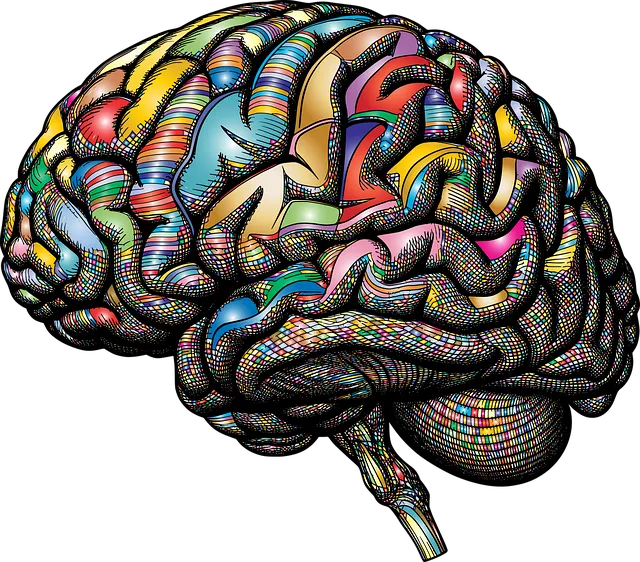In today's fast-paced world, mental wellness apps like those offered by Broomfield Kaiser are gaining popularity as essential tools for emotional well-being. These apps cater to rising demand for accessible and convenient solutions beyond traditional therapy, providing on-demand resources like guided meditations, mood tracking, and personalized recommendations. They integrate with professional services, including Broomfield Kaiser's classes, ensuring user safety. User-friendly interfaces and evidence-based therapies enhance engagement and mental wellness outcomes, with features like journaling exercises for self-awareness. Popular among healthcare providers too, these apps monetize through subscription models, appealing to users seeking comprehensive mental health solutions akin to Broomfield Kaiser's classes.
In today’s fast-paced world, mental wellness apps have emerged as powerful tools to support individuals’ psychological well-being. With growing awareness about mental health, there is a pressing need for innovative solutions like mobile applications. This article explores the development of mental wellness apps, focusing on key features, user interface design, and evidence-based therapies integration. We also delve into marketing strategies, using Broomfield Kaiser’s approach, demonstrating how their mental health classes can be effectively promoted and monetized.
- Understanding the Need for Mental Wellness Apps
- Key Features of Effective Mental Health Apps
- Designing User-Friendly Interfaces for Stress Relief Apps
- Integrating Evidence-Based Therapies in Digital Platforms
- Marketing and Monetization Strategies for Mental Wellness Apps: Broomfield Kaiser's Example
Understanding the Need for Mental Wellness Apps

In today’s fast-paced world, mental wellness is a crucial aspect of overall health that often goes overlooked. This is where mental wellness apps step in as valuable tools to support individuals navigating their emotional well-being. With increasing awareness about mental health issues, there is a growing demand for accessible and convenient solutions beyond traditional therapy sessions. Apps like those offered by Broomfield Kaiser aim to fill this gap by providing on-demand resources tailored to various needs.
The need for these applications is evident, especially considering the rise of stress-related disorders and the desire for self-improvement. Features such as guided meditations, mood tracking, and personalized recommendations enable users to enhance their emotional regulation and build resilience. Furthermore, many apps incorporate communication strategies, fostering connections between users and mental health professionals, which is particularly beneficial for those seeking additional support outside of class settings like Broomfield Kaiser’s mental health classes. This shift towards digital therapy opens doors for improved accessibility and self-care, catering to a diverse range of individuals looking to boost their self-esteem and overall mental wellness.
Key Features of Effective Mental Health Apps

Effective mental health apps are designed with a multitude of features that cater to diverse user needs and preferences. One key aspect is personalized content tailored to individual users based on their specific mental wellness goals and challenges. These apps often incorporate interactive tools such as mood tracking, meditation exercises, and cognitive behavioral therapy (CBT) techniques to empower users in managing their mental health.
Additionally, quality mental health apps provide accessible resources like educational articles, expert-led videos, and peer support communities, fostering a sense of connection and understanding. Integration with professional services, including the ability to book appointments with Broomfield Kaiser mental health classes or access crisis intervention guidance, is another vital feature. Furthermore, risk assessment tools for mental health professionals can be integrated to ensure user safety and prompt appropriate interventions when needed. The inclusion of mental wellness coaching programs development within these apps offers a comprehensive approach to enhancing users’ mental resilience and overall well-being.
Designing User-Friendly Interfaces for Stress Relief Apps

Designing user-friendly interfaces is paramount when creating stress relief apps, as it directly impacts user engagement and mental wellness outcomes. Apps like Broomfield Kaiser’s mental health classes thrive on intuitive designs that simplify complex tasks and promote a calming atmosphere. Incorporating features such as simple navigation, clear call-to-actions, and visually appealing layouts can significantly enhance user experience, encouraging consistent use.
By prioritizing user-friendliness, developers can ensure that healthcare providers and individuals seeking burnout prevention strategies for mental health professionals find the app accessible. This is especially crucial when addressing issues like risk management planning, as a seamless interface allows users to access tools for resilience building without frustration. An app designed with these principles in mind becomes not just a digital tool but an extension of therapeutic support.
Integrating Evidence-Based Therapies in Digital Platforms

Integrating evidence-based therapies into digital platforms is a game-changer in mental wellness app development. Apps like those offered by Broomfield Kaiser leverage scientific research to provide users with effective stress reduction methods and emotional healing processes tailored to their unique needs. By incorporating techniques backed by clinical studies, these apps offer a convenient and accessible way for individuals to manage their mental health from the comfort of their homes.
One notable feature is Mental Wellness Journaling Exercise Guidance, which encourages users to track their thoughts, emotions, and behaviors regularly. This practice not only promotes self-awareness but also facilitates reflection on progress made in coping strategies. As a result, users gain valuable insights into their mental wellness journey, making it easier for them to identify triggers and develop personalized plans for maintaining or improving their emotional well-being, much like attending comprehensive mental health classes at Broomfield Kaiser.
Marketing and Monetization Strategies for Mental Wellness Apps: Broomfield Kaiser's Example

Mental wellness apps have gained significant traction, with many users seeking digital tools to support their mental health and well-being. One notable example is Broomfield Kaiser’s app, which offers a range of mental health classes and resources tailored to diverse needs. To thrive in this competitive market, developers must implement robust marketing and monetization strategies.
Broomfield Kaiser has successfully attracted users by focusing on accessible content, including interactive exercises for stress reduction and anxiety relief. They also target specific demographics with tailored programs, such as burnout prevention strategies for healthcare providers. Integrating these targeted approaches into their app’s design ensures a personalized experience. Monetization is achieved through subscription models, offering tiered access to premium features and classes, appealing to users seeking comprehensive mental wellness solutions.
Mental wellness apps have emerged as a powerful tool to address growing concerns about mental health. By understanding user needs, incorporating evidence-based therapies, and adopting effective design principles, developers can create impactful solutions. As demonstrated by Broomfield Kaiser’s success with their mental health classes integrated into digital platforms, strategic marketing and monetization strategies are key to reaching a wider audience and promoting better mental well-being on a global scale.




